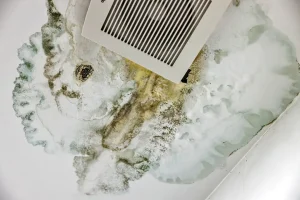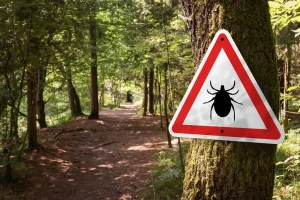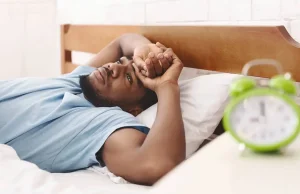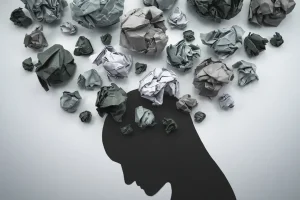My mom didn’t talk about it and I imagine hers didn’t either. For generations, the women in my family failed to mention what to expect during menopause – and you probably feel the same. The three stages of menopause were a mystery, even though all women will go through them at some point.
When we educate ourselves about menopause, we are more capable of understanding and supporting the women in our lives who will inevitably experience menopause. If you’re a man and don’t think this article pertains to you – I urge you to read on. All of us are affected by menopause. We either go through it ourselves or watch our mothers, grandmothers, wives, and lovers experience this powerful change.
Keep reading to learn more about menopause, including a brief look at each of the three stages, common menopause symptoms, and how to ease the transition from perimenopause to postmenopause.
Why We Don’t Talk About Menopause
I’m a child of the late 60s, and I didn’t learn anything about the three stages of menopause during my grade school sex education. They taught us about our period and how not to get pregnant – that’s it!
Unfortunately, even in the early 2000s, not much had changed. My daughters who are in their late 20s know no more about menopause than I did!
We all know women (or are women) who will experience menopause if they have not already. So, why is there very little information shared about this hot topic?
Menopause is part of the larger cycle of womanhood. Most people know that women go through a monthly cycle. But not everyone sees the larger cycle which begins with a woman’s first period and ends with menopause.
Many women have mixed feelings about menopause. Maybe they are ashamed, embarrassed, or confused about the changes happening in their body. Some may even dread the change because it reminds them they are getting older.
Menopause doesn’t have to be scary or confusing. The transition is as natural as tides rising or the moon cycling from new to full.
When I was in medical school, I was shocked by the lack of information on how to recognize and handle the phases of menopause. So, to set the record straight, the three stages of menopause are perimenopause, menopause, and postmenopause.
Menopause Phases
The average age women go through menopause is 51 – but menopause doesn’t happen according to a schedule. You are in menopause when you have gone a full 12 months without having a period.

A woman typically starts to see menopause symptoms in her mid-40s, but it can happen earlier in some and later in others. All women go through menopause, and the gradual transition from perimenopause to post-menopause may last anywhere from seven to fourteen years.
1. Early Stage of Menopause
Perimenopause is the time leading up to menopause. The early stage of menopause can last anywhere from several months to several years.
During perimenopause, your hormones fluctuate in a way that causes irregular cycles, heavy periods, or skipped periods. Some of the other symptoms of perimenopause include insomnia, anxiety, depression, mood swings, brain fog, and vaginal dryness.
2. Menopause
Menopause is when our period is gone for good. We are no longer ovulating, and our reproductive years are behind us. Some other symptoms that may develop in menopause are worsening sleep, joint pain, brain fog, weight gain (especially around the middle of the abdomen), painful intercourse, and loss of libido.
3. Late Stage of Menopause
Post-menopause is life beyond menopause. Hormones remain low for the rest of your life – if you choose not to undergo hormone replacement therapy. People in postmenopause are at an increased risk for certain health conditions, including heart disease and osteoporosis.
—
Each woman’s experience with menopause is unique. Some women have a multitude of symptoms that severely affect their quality of life, while others may have no symptoms whatsoever. Here are a few common symptoms to help you gauge if you’re in menopause.
Common Symptoms of Menopause
Your ovaries naturally slow down estrogen and progesterone production as you age. The symptoms of all three stages of menopause are caused by decreasing levels of these hormones in the body.
Symptoms related to estrogen fluctuation and loss include:
- Night sweats
- Hot flashes
- Vaginal dryness
- Loss of libido
- Painful intercourse
- Weight gain
- Joint pain
- Depression
And symptoms related to progesterone fluctuation and loss include:
- Insomnia
- Anxiety
- Irritability
- Mood swings
The three stages of menopause are easily recognizable once you know what to expect. However, that doesn’t make the symptoms any less of a nuisance. Keep reading for a few ways you can tackle the worst menopause systems.
How to Tackle the Worst Menopause Symptoms
Functional medicine uses a whole-body approach to address the symptoms of menopause. We look at your lifestyle, hormone levels, and overall health to support you during this whole body shift.
Here are Dr. Amy Reidhead’s tips for tackling the worst menopause symptoms.
1. Weight Gain during Menopause
Weight gain during menopause isn’t inevitable, but managing your weight during menopause can be tricky. Hormones, toxin load, and inflammation all affect how your body holds onto fat.
However, you can mitigate some menopausal weight gain by modifying your diet and exercise routine.
Protein is essential to maintain muscle mass and health postmenopause. Carefully monitor your protein intake to ensure you get an adequate amount – about 2.2 to 2.4 grams per kilogram of body weight. At the same time, make sure your healthy fat consumption doesn’t exceed 30% of your total daily calories.
Avoid simple carbohydrates and processed foods, but some carbohydrates from vegetables, fruits, and whole grains are OK!
Intermittent fasting – where you eat during an 8-hour window and fast for a 16-hour window – can be helpful for menopausal weight gain. However, not all women respond well to intermittent fasting. Hormonal fluctuations can lead to hypoglycemia and put more stress on the hormone/adrenal systems.
When it comes to exercise, moderation is the goal! Not too much, not too little.
Resistance training is essential in the menopausal time to preserve bone health. Walking, hiking, and moderate-intensity aerobic exercise are all helpful, but don’t over-exercise!
Too much exercise is stressful for your body. Our adrenals take over the production of some of our sex hormones during menopause. If the adrenal health is compromised, your efforts to lose weight during menopause may backfire.
2. Hot Flashes during Menopause
Hot flashes and nausea are symptoms of menopause. While you may not be able to get rid of hot flashes, you can limit how they affect you.
Dress in layers to maintain comfort throughout the day. Keep the bedroom cool at night and wear breathable pajamas or no pajamas. Avoid alcohol as it may contribute to hot flashes.
Some supplements are beneficial during menopause, but what works for you may not work for everyone. Boulder Holistic Functional Medicine usually recommends Medcap Menopause and MenoFem by Xymogen, or Estrovera (a form of rhubarb) by Metagenics. Supplements like maca, black cohosh, vitex, dong quai, and evening primrose oil may also reduce hot flashes.
Adrenal support and low-dose estrogen replacement therapy (especially bioidentical transdermal therapy) can also help with hot flashes. If your menopause symptoms significantly affect your quality of life, bioidentical hormone replacement therapy is one way to bring your body back into balance.
3. Insomnia and Mood Support during Menopause
Sleep hygiene is an essential part of any balanced lifestyle, especially during menopause. You can practice a few lifestyle changes to support good sleep hygiene, including a regular bedtime, white noise, and cool temperatures in the bedroom.
Micronized oral or topical progesterone can reduce menopause-related sleep issues. Progesterone also has GABA-like properties that may lessen anxiety and improve mood.
Boulder Holistic recommends sleep support supplements like SomnoPro, Melatonin, and CBD SLP to promote good sleep during menopause.
4. Libido Loss and Painful Intercourse during Menopause
Estrogen is a powerful female hormone. Without it, our tissues and skin dry up, and our vaginal tissues become dry and pale. It also has powerful anti-inflammatory qualities, which is why joint and intercourse pain are common in menopause and postmenopause.
When you replace Estrogen – specifically E3 in the vaginal area – you can alleviate some of the symptoms of low Estrogen, including vaginal dryness and painful intercourse. Boulder Holistic Functional Medicine in Boulder Colorado usually recommends Bezwecken hydration pearls or compounded Estrogen vaginal suppositories.
Topical Estrogen may also prevent painful intercourse in postmenopausal women. Boulder Holistic Functional Medicine recommends one called Biest that combines E2 and E3. Both types of Estrogen help combat symptoms of estrogen loss in women.
However, Estrogen isn’t the only hormone used for libido loss and painful intercourse. Topical Testosterone therapy supports a healthy libido. And topical DHEA may help those wary of estrogen replacement therapy, or those with a high breast cancer risk.
What Are the Signs That You Need Hormone Replacement Therapy
Much of the fear around hormone replacement therapy came from a poorly conducted study by the Women’s Health Initiative in the early 2000s. It showed that HRT had more detrimental effects than benefits.
Because of this study, many women still are afraid of HRT and may be suffering needlessly.
But since the early 2000s, the WHI study was reanalyzed, and new information shows HRT is beneficial for younger women and early postmenopausal women (50+). HRT can protect cardiovascular health, prevent coronary artery disease and reduce all causes of mortality.
The current understanding of hormone replacement therapy supports bioidentical hormone replacement therapy.
Estrogen is safest when given transdermally through a cream or patch. For safety, transdermal Estrogen should always be used in conjunction with progesterone. Progesterone is safe in oral or transdermal applications, but the oral route seems to help more with sleep and anxiety. Testosterone is commonly given transdermally as well.
Hormone replacement therapy requires careful monitoring by your physician to maintain optimal levels and to offer the best safety practices possible. I often use both LabCorp Labs and the Dutch test to monitor hormone levels and metabolism to provide the best-individualized care for my patients.
When you work with an experienced medical professional, HRT for menopause is safe and effective. It can help mitigate symptoms during all three stages of menopause, from the first hot flash to your final period.

Contact Boulder Holistic
Menopause doesn’t need to be a mystery. The symptoms of each stage are clearly marked and treatable. Boulder Holistic Functional Medicine in Boulder Colorado employs the functional medicine whole-body approach to treat all three stages of menopause. Adjust your diet and exercise, develop a healthy sleep routine, and supplement with herbs and HRT!
Contact us to learn more about your menopause treatment options at Boulder Holistic Functional Medicine!

Email Us
Have a question? Need to schedule an appointment? Send us an email. We'll get back to you right away.
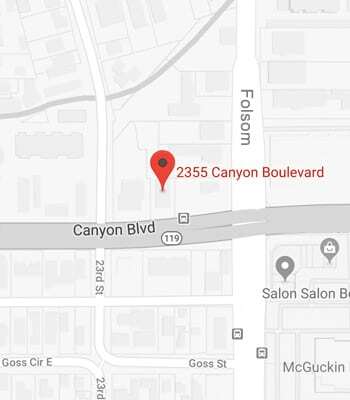
Get Directions
2355 Canyon Blvd
Suite 102
Boulder, CO 80302

Call Us
Need an appointment, prescription refill or have questions? Call us from 9:30am to 4:00pm.
303-390-1245



